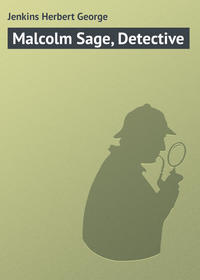 полная версия
полная версияPatricia Brent, Spinster
"I am afraid this is all very dull for you, Miss Brent," he remarked pleasantly.
"On the contrary," said Patricia, "I am greatly interested."
"Interested in politics?" questioned the Duke with a tinge of surprise in his voice.
Gradually Patricia found herself drawn into the conversation. For the first time in her life she found her study of Blue Books and her knowledge of statistics of advantage and use. The Cabinet Minister leaned forward with interest. The other guests had ceased their local conversation to listen to what it was that was so clearly interesting their host and the Cabinet Minister. In Patricia's remarks there was the freshness of unconvention. The old political war-horses saw how things appeared to an intelligent contemporary who was not trammelled by tradition and parliamentary procedure.
Suddenly Patricia became aware that she had monopolised the conversation and that everyone was listening to her. She flushed and stopped.
"Please go on," said the Cabinet Minister; "don't stop, it's most interesting."
But Patricia had become self-conscious. However, the Duke with great tact picked up the thread, and soon the conversation became general.
As they rose from the table the Duke whispered to Patricia, "Don't hurry away, please, I want to have a chat with you after the others have gone."
As they went to the drawing-room, Lady Peggy came up to Patricia and linking her arm in hers, said:
"I'm dreadfully afraid of you now, Patricia. Why everybody was positively drinking in your words. Wherever did you learn so much?"
"You cannot be secretary to a rising politician," said Patricia with a smile, "without learning a lot of statistics. I have to read up all sorts of things about pigs and babies and beet-root and street-noises and all sorts of objectionable things."
"What do you think of her, Goddy?" cried Lady Peggy to Elton as he joined them.
"I'm afraid she has made me feel very ignorant," replied Elton. "Just as you, Peggy, always make me feel very wise."
In the drawing-room the Serbian attached himself to Patricia and produced his "map of obliteration," as the Duke had once called it, explaining to her at great length how nearly all the towns and cities in Europe were for the most part populated by Serbs.
It was obvious to her, from the respect with which she was treated, that her remarks at luncheon had made a great impression.
When most of the other guests had departed, the Duke walked over to her, and dismissing Peggy, entered into a long conversation on political and parliamentary matters. He was finally interrupted by Lady Peggy.
"Look here, Daddy, if you steal my friends I shall – " she paused, then turning to Elton she said, "What shall I do, Goddy?"
"Well, you might marry and leave him," suggested Elton helpfully.
"That's it. I will marry and leave you all alone, Daddy."
"Cannot we agree to share Miss Brent?" suggested the Duke, smiling at Patricia.
"Isn't he a dear?" enquired Lady Peggy of Patricia. "When other men propose to me, and quite a lot have," she added with almost childish simplicity, "I always mentally compare them with Daddy, and then of course I know I don't want them."
"That is my one reason, Peggy, for not proposing," said Elton. "I could never enter the lists with the Duke."
"You're a pair of ridiculous children," laughed the Duke.
In response to a murmur from Patricia that she must be going, Lady Peggy insisted that she should first come upstairs and see her den.
The "den" was a room of orderly disorder, which seemed to possess the freshness and charm of its owner. Lady Peggy looked at Patricia, a new respect in her eyes.
"You must be frightfully clever," she said with accustomed seriousness. "I wish I were like that. You see I should be more of a companion to Daddy if I were."
"I think you are an ideal companion for him you are," said Patricia.
"Oh! he's so wonderful," said Lady Peggy dreamily. "You know I'm not always such a fool I appear," she added quite seriously, "and I do sometimes think of other things than frills and flounces and chocolates." Then with a sudden change of mood she cried, "Wasn't it clever of me capturing you to-day? As soon as you're alone Daddy will tell me what he thinks of you, and I shall feel so self-important."
As Patricia looked about the room, charmed with its dainty freshness, her eyes lighted upon a large metal tea-tray. Lady Peggy following her gaze cried:
"Oh, the magic carpet!"
"The what?" enquired Patricia.
"That's the magic carpet. Come, I'll show you," and seizing it she preceded Patricia to the top of the stairs. "Now sit on it," she cried, "and toboggan down. It's priceless."
"But I couldn't."
"Yes you could. Everybody does," cried Lady Peggy.
Not quite knowing what she was doing Patricia found herself forced down upon the tea-tray, and the next thing she knew was she was speeding down the stairs at a terrific rate.
Just as she arrived in the hall with flushed cheeks and a flurry of skirts, the door of the library opened and the Duke and Elton came out.
Patricia gathered herself together, and with flaming cheeks and downcast eyes stood like a child expecting rebuke, instead of which the Duke merely smiled. Turning to Elton he remarked:
"So Miss Brent has received her birth certificate."
As he spoke the butler with sedate decorum picked up the tray and carried it into his pantry as if it were the most ordinary thing in the world for guests to toboggan down the front staircase.
"To ride on Peggy's 'magic carpet,' as she calls it," said the Duke, "is to be admitted to the household as a friend. Come again soon," he added as he shook hands in parting. "Any Sunday at lunch you are always sure to catch us. We never give special invitations to the friends we want, do we, Peggy? and I want to have some more talks with you."
As Patricia and Elton walked towards the Park he explained that Lady Peggy's tea-tray had figured in many little comedies. Bishops, Cabinet Ministers, great generals and admirals had all descended the stairs in the way Patricia had.
"In fact," he added, "when the Duke was in the Cabinet, it was the youngest and brightest collection of Ministers in the history of the country. Every one of them was devoted to Peggy, and I think they would have made war or peace at her command."
When Patricia arrived at Galvin House, she was conscious of the world having changed since the morning. All her gloom had been dispelled, the drawn look had passed from her face, and she felt that a heavy weight had been lifted from her shoulders.
CHAPTER XVIII
THE AIR RAID
"Miss Brent, please get up. There's an air raid."
Mechanically Patricia sat up in bed and listened. Outside a police-whistle was droning its raucous warning; within there was the sound of frightened whispers and the noise of the opening and shutting of doors. Suddenly there was a shriek, followed by a low murmur of several voices. The sound of the police-whistle continued, gradually dying away in the distance, and the noises within the house ceased.
Patricia strained her ears to catch the first sound of the defensive guns. She had no intention of getting up for a false alarm. For some minutes there was silence, then came a slight murmur, half sob, half sigh, as if London were breathing heavily in her sleep, another followed, then half a dozen in quick succession growing louder with every report. Suddenly came the scream of a "whiz-bang" and the thunder of a large gun. Soon the orchestra was in full swing.
Still Patricia listened. She was fascinated. Why did guns sound exactly as if large plank were being dropped? Why did the report seem as if something were bouncing? Suddenly a terrific report, a sound as if a giant plank had been dropped and had "bounced." A neighbouring gun had given tongue, another followed.
She jumped out of bed and proceeded to pull on her stockings. There was a gentle tapping at her door, not the peremptory summons that had awakened her and which, by the voice that had accompanied it, she recognised as that of Mrs. Craske-Morton.
"What is it?" she called out.
"It's me, mees." Patricia could scarcely recognise in the terrified accents the voice of Gustave. "It's a raid. Oh! mees, please come down."
"All right, Gustave. I shall be down in a minute," replied Patricia, and she heard a flurry of retreating footsteps. Gustave was descending to safety. There was about him nothing of the Roman sentry.
Patricia proceeded with her toilette, hastened, in spite of herself, by a tremendous crash which she recognised as a bomb.
At Galvin House "Raid Instructions" had been posted in each room. Guests were instructed to hasten with all possible speed downstairs to the basement-kitchen, where tea and coffee would be served and, if necessary, bandages and first-aid applied. Miss Sikkum had made a superficial study of Red Cross work from a shilling manual but as, according to her own confession, she fainted at the sight of blood, no very great reliance was placed in her ministrations.
As Patricia entered the kitchen her first inclination was to laugh at the amazing variety, not only of toilettes, but of expressions that met her eyes. Self-confident in the knowledge that she was fully dressed, she looked about her with interest.
"Oh, here you are, Miss Brent!" exclaimed Mrs. Craske-Morton, who was busily engaged in preparing the tea and coffee of the "Raid Instructions." "Gustave would insist on going up to call you a second time. We were – " Mrs. Craske-Morton broke off her sentence and dashed for the gas-stove, where the milk was boiling over.
"Oh, mees!" Patricia turned to Gustave. She bit her lip fiercely to restrain the laugh that bubbled up at the sight of the major-domo of Galvin House.
Above a pair of black trousers, tucked in the tops of unlaced boots, and from which the braces flapped aimlessly, was visible the upper part of a red flannel night-shirt. The remainder was bestowed beneath the upper part of the trousers, giving to his figure a curiously knobbly appearance. His face was leaden-coloured and his upstanding hair more erect than ever, whilst in his eyes was Fear.
He was trembling in every limb, and his jaw shook as he uttered his expression of relief at the sight of Patricia. She smiled at him, then suddenly remembering that, in spite of his terror, he had voluntarily gone up to the top of the house to call her, she felt something strangely uncomfortable at the back of her throat.
"Come along, Gustave!" she cried brightly. "Let us help get the tea. I'm so thirsty."
From that moment Gustave appeared to take himself in hand, and save for a violent start, at the more vigorous reports, seemed to have overcome his terror.
As Patricia proceeded to assist Mrs. Craske-Morton, a veritable heroine in a pink flannel wrapper, she took stock of her fellows. Miss Wangle was engaged in prayer and tears, her wig was awry, her face drawn and yellow and her clothes the garb of advanced maidenhood. On her feet were bed-socks, half thrust into felt slippers. From beneath a black quilted dressing-gown peeped with virtuous pride the longcloth of a nightdress of Victorian severity.
Mrs. Mosscrop-Smythe was in curl-papers and a faded blue kimono that allowed no suggestion to escape of the form beneath. Miss Sikkum had seized a grey raincoat, above which a forest of curl papers looked strangely out of place. Her fingers moved restlessly. The two top buttons of the raincoat were missing, displaying a wealth of blue ribbon and openwork that none had suspected in her. The lateness at which the ribbon and openwork began gave an interesting demonstration in feminine bone structure.
Mr. Sefton was splendid in a purple dressing-gown with orange cord and tassels, and red and white striped pyjamas beneath. Mr. Sefton had chosen his raid-costume with elaborate care; but the suddenness of the alarm had not allowed of the arrangement of his hair, most of which hung down behind in a sandy cascade. His manner was the forced heroic. He was smoking a cigarette with a too obvious nonchalance to deceive. The heroes of Mr. Sefton's imagination always lit cigarettes when facing death. They were of the type that seizes a revolver when the ship is sinking and, with one foot placed negligently upon the capstan (Mr. Sefton had not the most remote idea of what a capstan was like) shouted, "Women and children first."
He walked about the kitchen with what he meant to be a smile upon his pale lips. The cigarette he found a nuisance. If he held it between his lips the smoke got in his eyes and made them stream with water; if, on the other hand, he held it between his fingers, it emphasized the shaking of his hand. He compromised by letting it go out between his lips, arguing that the effect was the same.
Mr. Bolton had donned his fez and velvet smoking-jacket above creased white pyjama trousers that refused to meet the tops of his felt slippers. Mr. Bolton continued to make "jokes," for the same reason that Mr. Sefton smoked a cigarette.
Mr. Cordal was negative in a big ulster with a hem of nightshirt beneath, leaving about eight inches of fleshless shin before his carpet slippers with the fur-tops were reached. He sat gazing with unseeing eyes at the cook huddled up opposite, moaning as she held her heart with a fat, dirty hand.
Mrs. Barnes, the victim of indecision, had leapt straight out of bed, gathered her clothes in her arms and had flown to safety. She walked about the kitchen aimlessly, dropping and retrieving various garments, which she stuffed back again into the bundle she carried under her arm.
Mrs. Craske-Morton was practical and courageous. Her one thought was to prepare the promised refreshments. Her staff, with the exception of Gustave, was useless, and she was grateful to Patricia for her assistance.
Outside pandemonium was raging, the noise of the barrage was diabolical, the "bouncing" of the heavy guns, the screams of the "whiz-bangs," the cackle of machine-guns from aeroplanes overhead; all seemed to tell of death and chaos.
Suddenly the puny sound of guns was drowned in one gigantic uproar. For a moment the place was plunged in darkness, then the electric light shuddered into being again. The glass flew from the windows, the house rocked as if uncertain whether or no it should collapse. Miss Wangle slipped on to her knees, her wig slipped on to her left ear.
"Oh, my God!" screamed the cook, as if to ensure exclusive rights to the Deity's attention.
Jenny, the housemaid, entirely unconscious that her nightdress was her sole garment, threw herself flat on her face. Mrs. Craske-Morton, who was pouring out tea, let the teapot slip from her hand, smashing the cup and pouring the contents on to the table. Gustave's knees refused their office and he sank down, grasping with both hands the edge of the table. Mrs. Barnes dropped her clothes without troubling to retrieve them.
Suddenly there was a terrifying scream outside, then a motor-car drew up and the sound of men's voices was heard.
Still the guns thundered. Patricia felt herself trembling. For a moment a rush of blood seemed to suffocate her, then she found herself gazing at Miss Wangle, wondering whether she were praying to God or to the bishop. She laughed in a voice unrecognisable to herself. She looked about the kitchen. Mr. Sefton had sunk down upon a chair, the cigarette still attached to his bloodless lower lip, his arms hanging limply down beside him. Mr. Cordal was looking about him as if dazed, whilst Mr. Bolton was gazing at the glassless window-frames, as if expecting some apparition to appear.
"It's a bomb next door," gasped Mrs. Craske-Morton, then remembering her responsibilities, she caught Patricia's eye. There was appeal in her glance.
"Come along, Gustave," cried Patricia in a voice that she still found it difficult to recognise as her own.
Gustave, still on his knees, looked round and up at her with the eyes of a dumb animal that knows it is about to be tortured.
"Gustave, get up and help with the tea," said Patricia.
A look of wonder crept into Gustave's eyes at the unaccustomed tone of Patricia's voice. Slowly he dragged himself up, as if testing the capacity of each knee to support the weight of his body.
"There's brandy there," said Mrs. Craske-Morton, pointing to a spirit-case she had brought down with her. "Here's the key."
Patricia took the key from her trembling hand, noting that her own was shaking violently.
"Mrs. Morton," she whispered, "you are splendid."
Mrs. Morton smiled wanly, and Patricia felt that in that moment she had got to know the woman beneath the boarding-house keeper.
"Shall we put it in their tea?" enquired Patricia, holding the decanter of brandy.
Mrs. Craske-Morton nodded.
"Now, Gustave!" cried Patricia, "make everybody drink tea."
Gustave looked at his own hands, and then down at his knees as if in doubt as to whether he possessed the power of making them obey his wishes.
Miss Wangle was still on her knees, the cook was appealing to the Almighty with tiresome reiteration. Jenny had developed hysterics, and was seated on the ground drumming with her heels upon the floor, Miss Sikkum gazing at her as if she had been some phenomenon from another world. Mr. Bolton had valiantly pulled himself together and was endeavouring to persuade Mrs. Barnes to accept the various garments that he was picking up from the floor. Her only acknowledgment of his gallantry was to gaze at him with dull, unseeing eyes, and to wag her head from side to side as if in repudiation of the ownership of what he was striving to get her to take from him.
Mr. Sefton, valiant to the end, was with trembling fingers endeavouring to extract a cigarette from his case, apparently unconscious that one was still attached to his lip. Mrs. Craske-Morton, Patricia and Gustave set themselves to work to pour tea and brandy down the throats of the others. Mr. Sefton took his mechanically and put it to his lips, oblivious of the cigarette that still dangled there. Finding an obstruction he put up his hand and pulled the cigarette away and with it a portion of the skin of his lip. For the rest of the evening he was dabbing his mouth with his pocket-handkerchief.
Gustave had valiantly gone to the assistance of Jenny, and was endeavouring to pour tea through her closed teeth, with the result that it streamed down the neck of her nightdress. The effect was the same, however. As she felt the hot fluid on her chest she screamed, stopped drumming with her heels and looked about the kitchen.
"You've scalded me, you beast!" she cried, whereat Gustave, who was sitting on his heels, started and fell backwards, bringing Miss Sikkum down on top of him together with her cup of tea.
Mrs. Craske-Morton was ministering to Miss Wangle and Mrs. Mosscrop-Smythe. Mr. Bolton and Mr. Cordal were both drinking neat brandy out of teacups.
Outside the guns still thundered and screamed.
Patricia went to the assistance of the cook; kneeling down she persuaded her to drink a cup of tea and brandy, which had the effect of silencing her appeals to the Almighty.
For an hour the "guests" of Galvin House waited, exactly what for no one knew. Then the noise of the firing began to die away in waves of sound. There would be a few minutes' silence but for the distant rumble of guns, then suddenly a spurt of firing as if the guns were reluctant to forget their former anger. Another period of silence would follow, then two or three isolated reports, like the snarl of dogs that had been dragged from their prey. Finally quiet.
For a further half-hour Galvin House waited, praying that the attack would not be renewed. There were little spurts of conversation. Mr. Sefton was slowly returning to the "foot on the Capstan" attitude, and actually had a cigarette alight. Mr. Bolton and Mr. Cordal were speculating as to where the bomb had fallen. Mrs. Craske-Morton was wondering if the Government would pay promptly for the damage to her glass.
Outside there were sounds of life and movement, cars were throbbing and passing to and fro, and men's voices could be heard. Suddenly there was a loud peal of the street-door bell. All looked at each other in consternation. Gustave looked about him as if he had lost a puppy. Mrs. Craske-Morton looked at Gustave.
"Gustave!" said Patricia, surprised at her own calm.
Gustave looked at her for a moment then, remembering his duties, went slowly to the door, listening the while as if expecting a further bombardment to break out. With the exception of Miss Wangle and the cook, everybody was on the qui vive of expectation.
"It's the police," suggested Mrs. Craske-Morton, with conviction.
"Or the ambulance," ventured Miss Sikkum in a trembling voice. "They're collecting the dead," she added optimistically.
All eyes were riveted upon the kitchen door. Steps were heard descending the stairs. A moment later the door was thrown open and Gustave in a voice strangely unlike his own announced:
"'Ees Lordship, madame."
Bowen entered the kitchen and cast a swift look about him. A light of relief passed over his face as he saw Patricia. Some instinct that she could neither explain nor control caused her to go over to him, and before she knew what was taking place both her hands were in his.
"Thank God!" he breathed. "I was afraid it was this house. I heard a bomb had dropped here. Oh, my dear! I've been in hell!"
There was something in his voice that thrilled her as she had never been thrilled before. She looked up at him smiling, then suddenly with a great content she remembered that she had dressed herself with care.
Bowen looked about him, and seeing Mrs. Craske-Morton, went over and shook hands.
"She's a regular heroine, Peter," said Patricia, unconscious that she had used his name. "She's been so splendid."
Mrs. Craske-Morton smiled at Patricia, again her human smile.
"Oh! go away, make him go away!" It was Mrs. Mosscrop-Smythe who spoke. Her words had an electrifying effect upon everyone. Miss Wangle sat up and made feverish endeavours to straighten her wig. Jenny, the housemaid, looked round for cover that was nowhere available. The cook became aware of her lack of clothing. Miss Sikkum strove to minimise the exhibition of feminine bone-structure. Mrs. Barnes made a dive for Mr. Bolton, who was still holding various of her garments that he had retrieved. These she seized from him as if he had been a pickpocket, and thrust them under her arm.
"Oh, please go away!" moaned the cook.
"Come upstairs," said Patricia as she led the way out of the kitchen, to the relief of those whose reawakened modesty saw in Bowen's presence an outrage to decorum. Switching on the light in the lounge, Patricia threw herself into a chair. She was beginning to feel the reaction.
"Why did you come?" she asked.
"I heard that a bomb had fallen in this street and – well, I had to come. I was never in such a funk in all my life."
"How did you get round here; did you bring the car?"
"No, I couldn't get the car out, I walked it," said Bowen briefly.
"That was very sweet of you," said Patricia gratefully, looking up at him in a way she had never looked at him before. "And now I think you must be going. We must all go to bed again."
"Yes, the 'All Clear' will sound soon, I think," replied Bowen.
They moved out into the hall. For a moment they stood looking at each other, then Bowen took both her hands in his. "I am so glad, Patricia," he said, gazing into her eyes, then suddenly he bent down and kissed her full on the lips.
Dropping her hands and without another word he picked up his cap and let himself out, leaving Patricia standing gazing in front of her. For a moment she stood, then turning as one in a dream, walked slowly upstairs to her room.
"I wonder why I let him do that?" she murmured as she stood in front of the mirror unpinning her hair.
CHAPTER XIX
GALVIN HOUSE AFTER THE RAID
The next day and for many days Galvin House abandoned itself to the raid. The air was full of rumours of the appalling casualties resulting from the bomb that had been dropped in the next street. No one knew anything, everyone had heard something. The horrors confided to each other by the residents at Galvin House would have kept the Grand Guignol in realism for a generation.







